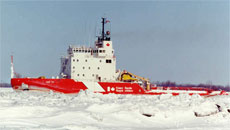TORONTO - The federal government should conduct a systemic review of convictions secured through the so-called Mr. Big police sting operations following a landmark ruling by the Supreme Court of Canada, say advocates for the wrongly convicted people.
The court ruled that confessions obtained through the investigative technique — which involves undercover officers recruiting a suspect to a fictitious criminal organization while posing as gangsters in order to extract a confession to a crime — tend to be unreliable and must be presumed inadmissible in court.
The Association in Defence of the Wrongly Convicted said Thursday that in light of the July 31 ruling, the Justice Ministry should set up a working group to conduct a retroactive review of hundreds of convictions.
The group's founder, James Lockyer, said the process could take a couple of years to complete, but it's "worth doing."
"If we have a substantial number of people who've been wrongly convicted sitting in jail, then we should work to find and identify them," he said in a news conference.
The association estimates that more than 350 Mr. Big investigations been conducted across Canada between the early 1990s, when the technique was first used in British Columbia, and the late 2000s.
A spokeswoman for Justice Minister Peter MacKay said the review was unnecessary because the Criminal Code already provides a mechanism for remedying miscarriages of justice.
"The Supreme Court of Canada's recent decision does not prohibit this investigative technique, but simply refines the law surrounding its use," Clarissa Lamb said in an email.
"As such, we do not support a systemic retroactive review into all cases involving confessions obtained through this lawful technique."
But the association said the review is needed because many of the cases — which are not isolated in one province — are no longer in the judicial system.
"There is no rule of appeal available to these individuals and that's why we need the minister's help," said Russell Silverstein, a lawyer who also works for the non-profit.
He said Australia is the only other western country where the investigative technique is used.
"This technique is very much the creation of the RCMP and it began largely in British Columbia, but it has over the last 30 years spread across the country," he added.
Civil-rights activists say that the Supreme Court ruling has the potential to reduce wrongful convictions.
The RCMP has said it will review the decision to see how it will affect future investigations.





